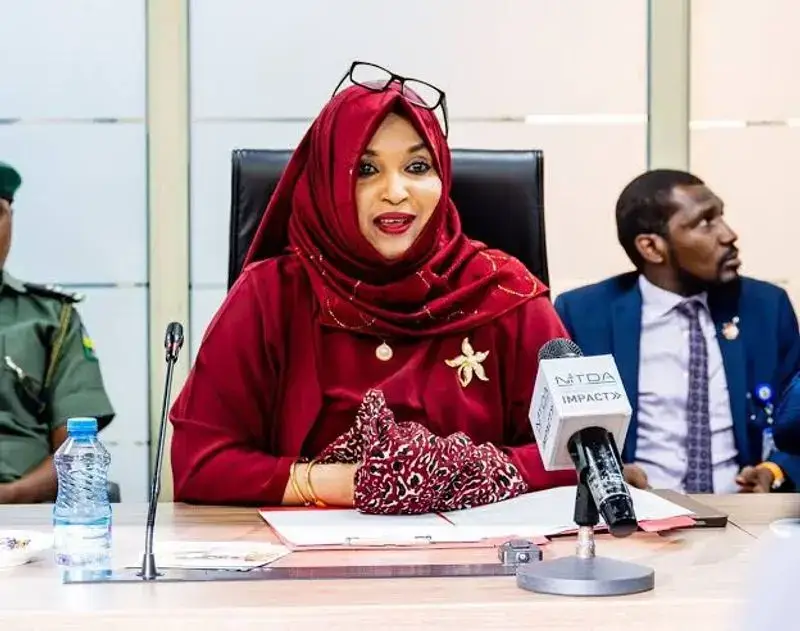With the approval of the new minimum wage by President Bola Tinubu, the Federal Government, on Saturday, declared that it will no longer tolerate massive recruitment into agencies without sanction or waiver, as well as selective promotions.
Permanent Secretary Olufunsho Adebiyi made this indication at the opening of a one-day retreat organised by the State House Management and Heads of government agencies under its supervision, as part of preparations for the issuance of the call circular for the commencement of the 2025 budget exercise.
Adebiyi said, “We now have new public service rules that define when to promote, who is due for promotion, mode of promotion, procedure, and conduct of promotion examinations, and strict adherence to public service rules.”
According to the Permanent Secretary, the retreat, the first of its kind under this administration, also deliberated on the need for strict enforcement of government policies and sanctions for defaulting agencies.
“The retreat apprised CEOs of government agencies on types of appointments into the public service, criteria and qualifications for these appointments, procedures for procurement processes, budget preparation, and the monitoring and evaluation of government policies,” he added.
Earlier, while opening the retreat, the Deputy Chief of Staff to the President, Senator Ibrahim Hadeija, urged the Heads of Agencies to be guided by the extant provisions that establish their organisations.
Senator Hadeija, who represented Vice President Kashim Shettima, stressed the importance of adhering to the set objectives initiated by the State House management, particularly in institutionalising e-governance to improve operations.
He commended the Attorney General of the Federation and Minister of Justice, Lateef Fagbemi, for his insightful presentation titled, “Delineation of Roles and Functions between the Management and the Agency and its Supervising Entity: A Prerequisite for Good Relationships and Effective Delivery of Mandate.”
“This is a very important retreat to remind senior civil servants, new appointees, and Heads of Agencies about the Civil Service regulations.
“These regulations can be quite tedious, and the Permanent Secretary, State House, was right when he said some of these issues will come back to his table.
“I remember when I was in the Senate Public Accounts Committee, I have seen some faces here that we summoned to come and answer questions that arose from the Auditor-General’s report.
“This underscores the importance of reminding ourselves of the procedural issues that must be complied with in governance and administration,” he said.
In an overview, the authorities explained that the retreat was designed to foster collaboration and create synergy in the operations of the State and Agencies under its supervision.
“In order for us to drive the Renewed Hope Agenda of President Bola Ahmed Tinubu, it has become necessary for us to synergize within the State House and all the agencies under its control.
“The retreat is structured to define who is responsible for what, how we can help each other achieve our mandates, and some of us are meeting each other for the first time.
“It is necessary to define our roles and limits and avoid breaking financial, procurement, and administrative thresholds.”
The agencies whose establishing Acts place them under the supervision of the State House include the Bureau of Public Enterprises (BPE), Bureau of Public Procurement (BPP), Nigeria Agriculture and Land Development Agency (NALDA), Office of the Chief Economic Adviser to the President (OCEAP), and the Economic and Financial Crimes Commission (EFCC).
Others are the Nigeria Extractive Industries Transparency Initiative (NEITI), Nigerian Financial Intelligence Unit (NFIU), Nigerian Institute for Policy and Strategic Studies (NIPSS), National Hajj Commission of Nigeria (NAHCON), National Centre for the Coordination of Early Warning and Response Mechanism, National Council on Climate Change (NATCCC), National Emergency Management Agency (NEMA), National Agency for Science and Engineering Infrastructure (NASENI), and the National Atomic Energy Commission (NAEC).

 3 months ago
6
3 months ago
6















 English (US) ·
English (US) ·